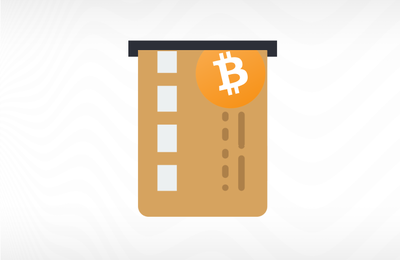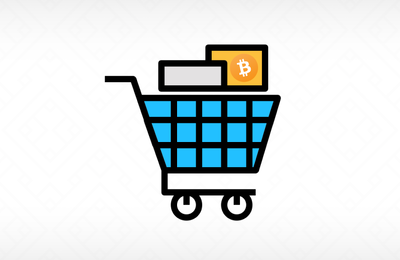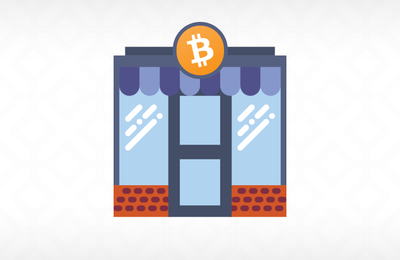
Cryptocurrencies have become increasingly popular over the past few years, with people using them to invest, purchase goods and services, and manage their finances. Even retailers and e-commerce stores have integrated cryptocurrency payment gateways. But one area in which cryptocurrencies have yet to gain a foothold is with mobile e-wallet apps. In this article, we'll explore when these mobile wallets will truly embrace cryptocurrencies and how it could revolutionize the way we use our money.
What is an e-wallet?
An e-wallet, also known as a digital wallet, is an online service that allows users to store and manage their cards as well as make fast, easy payments to retailers that accept this type of payment. There are many different types of e-wallets, but they all essentially perform the same function. For example, Google Pay is a popular e-wallet people use at online casinos.
How is cryptocurrency currently stored?
Cryptocurrencies are currently stored in a variety of ways, depending on the type of currency and the preferences of the user. Some popular storage methods include keeping them in a secure digital or hardware wallet, using a third-party provider or simply holding them in an exchange account. Each method has its own advantages and disadvantages that should be considered when choosing how to store your cryptocurrency holdings.
Digital and hardware wallets: These are perhaps the most secure ways to store cryptocurrencies, as they allow you to keep your private keys offline and away from potential hacking attempts. However, they can be somewhat difficult to set up and use, especially for less technically-inclined users. Additionally, if you lose your wallet or forget your private keys, you will lose access to your currency.
Third-party providers: These wallets offer a more convenient solution for many users, as they typically provide easy-to-use interfaces and allow you to hold multiple currencies in one account. However, this convenience comes at a cost – you are trusting a third party with your private keys, which means they could potentially steal your currency or otherwise misuse it. Additionally, if the provider goes out of business or otherwise ceases operating, you may lose access to your funds.
Exchange accounts: These are perhaps the easiest way to store cryptocurrency, as most exchanges will automatically create an account for you when you sign up. However, this convenience comes with its own risks – exchanges have been hacked in the past, which could lead to loss of funds.
Current challenges with integrating cryptocurrencies into e-wallets
There are still some challenges that need to be addressed in order to make cryptocurrencies more widely accepted by e-wallets. One of the main issues is the volatility of cryptocurrencies. Their prices can fluctuate quite a bit, which makes them less than ideal for use in everyday transactions, and deters retailers or service providers from accepting crypto payments.
Another challenge is the lack of regulation around cryptocurrencies. This can make it difficult for e-wallet providers to integrate them into their existing offerings that are already subject to stringent regulations.
Additionally, because cryptocurrency wallets are known for being really secure, traditional e-wallets that hold fiat currency pale in comparison in terms of security measures. Getting e-wallets on par with these security standards will be relatively difficult, especially if they are not built with blockchain technology.
Finally, there is still a general lack of awareness about cryptocurrencies among the general population. This means that there is still much work to be done in terms of educating people about how they work and what benefits they could offer.
Overall, integrating cryptocurrencies into e-wallets is a complicated process that requires careful consideration of many different factors. It will likely take some time before the industry reaches a point at which cryptocurrencies are widely accepted and integrated into mainstream payment systems.
Why e-wallets may embrace cryptocurrency sooner than you think
E-wallet providers have been slow to adopt cryptocurrencies as a payment option, but that may soon change. A number of factors are coming into play that could make e-wallets the go-to option for cryptocurrency users.
Cryptocurrency adoption is growing
More and more people are using cryptocurrencies like Bitcoin and Ethereum for everyday transactions. This is putting pressure on e-wallet providers to offer support for these digital assets.
Regulatory clarity is increasing
In the past, there has been a lot of uncertainty surrounding the regulation of cryptocurrencies. However, this is starting to change as governments around the world are beginning to provide clarity on how they will treat these assets. This regulatory clarity is making it easier for e-wallet providers to offer support for cryptocurrencies.
The infrastructure is improving
Cryptocurrencies are still in their early days and the infrastructure surrounding them is constantly evolving. This includes everything from exchanges where you can buy and sell digital assets to wallets that store your private keys. As this infrastructure continues to improve, it will become easier for e-wallet providers to offer support for cryptocurrencies.
All of these factors are coming together to create a perfect storm that could see e-wallets embrace cryptocurrencies in a big way in the near future.













